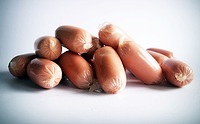South Africa’s Listeria Outbreak Claims 150+ Lives; Source Still Unknown

On Wednesday, the National Institute for Communicable Diseases (NICD) issued its latest report on South Africa’s listeriosis outbreak--the worst of it’s kind in recorded history.
As of February 14, a total of 872 Listeria cases have been confirmed by the NICD. Nearly half of the cases (43 percent) involve babies under 1 month of age. To date, 164 individuals have died as the result of the outbreak.
This outbreak--which began in January 2017--is the largest documented Listeria outbreak in world history. There is still no known source that is causing these deaths and illnesses.
"So far, our epidemiological investigation team has interviewed about 60 listeriosis victims to find out what they ate, day by day, during the month before they became symptomatic, in an attempt to identify patterns of consumption and indicate what we can eliminate. None had eaten smoked fish, for example,” said NICD's Dr. Juno Thomas at a listeriosis workshop hosted by the South African Association of Food Science and Technology in Johannesburg on Wednesday.
Because Listeria is destroyed when properly cooked, it is believed that the outbreak’s food source might be a raw, uncooked ready-to-eat food, fruit, or vegetable.
Since victims come from a range of socioeconomic backgrounds, it has been difficult to pinpoint one single food source that all of them consumed leading up to their illness. Some food experts say the culprit in this outbreak is probably something that South African consumers eat or drink very regularly.
Listeriosis is most commonly associated with ready-to-eat deli meats, raw/unpasteurized dairy products, raw sprouts and some smoked seafoods.
See now: Situation Report on Listeriosis Outbreak, South Africa, 2018
Looking for a reprint of this article?
From high-res PDFs to custom plaques, order your copy today!




